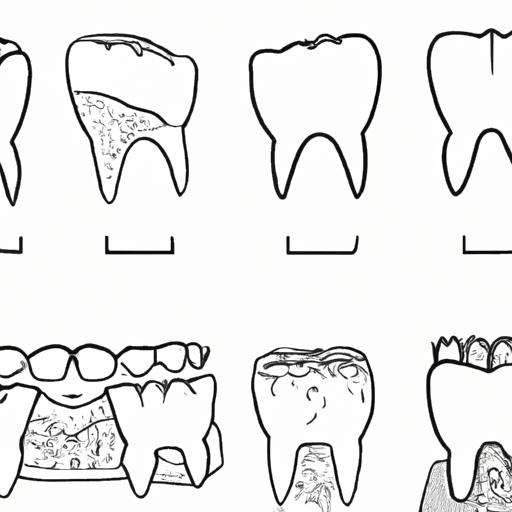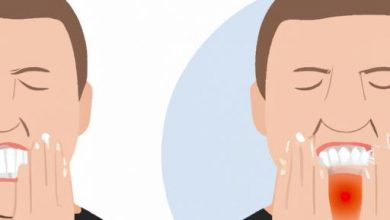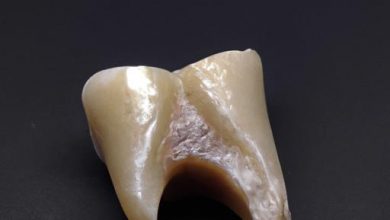Various Dental Problems – Symptoms, Treatment, and Prevention
Introduction

Dental problems are a common issue that affects millions of people worldwide. These problems can range from minor issues such as tooth sensitivity to severe conditions such as gum disease and tooth decay. It is essential to take care of your dental health to prevent these problems from occurring and to maintain good oral hygiene. In this article, we will discuss the most common dental problems, their symptoms, treatment, and prevention methods.
Dental Decay
Dental decay, also known as tooth decay or cavities, is a common dental problem that occurs when the tooth enamel breaks down due to bacteria and acid buildup. The bacteria in the mouth produce acid that erodes the tooth’s enamel, causing holes or cavities in the tooth. If left untreated, dental decay can lead to severe tooth pain, infection, and even tooth loss.
Symptoms of Dental Decay
The symptoms of dental decay include tooth sensitivity, pain when biting or chewing, visible holes or pits in the teeth, and dark or white stains on the teeth. If you experience any of these symptoms, it is essential to visit a dentist to prevent the condition from worsening.
Treatment and Prevention
The treatment for dental decay depends on the severity of the condition. In mild cases, the dentist may recommend fluoride treatment or dental fillings to restore the tooth’s enamel. In severe cases, a root canal or tooth extraction may be necessary. To prevent dental decay, it is important to practice good oral hygiene, such as brushing and flossing regularly, avoiding sugary and acidic foods and drinks, and visiting a dentist regularly for checkups and cleanings.
Gum Disease
Gum disease, also known as periodontal disease, is a bacterial infection that affects the gum tissue and bone that supports the teeth. This condition is caused by the buildup of plaque and bacteria on the teeth and gums, leading to inflammation and swelling. If left untreated, gum disease can lead to tooth loss and other health problems such as heart disease and diabetes.
Symptoms of Gum Disease
The symptoms of gum disease include red, swollen, or bleeding gums, bad breath, receding gums, and loose or shifting teeth. If you experience any of these symptoms, it is essential to visit a dentist as soon as possible to prevent the condition from worsening.
Treatment and Prevention
The treatment for gum disease depends on the severity of the condition. In mild cases, the dentist may recommend a professional cleaning to remove the plaque and bacteria buildup. In severe cases, surgery may be necessary to remove the infected tissue or to restore the gum and bone tissue. To prevent gum disease, it is important to practice good oral hygiene, such as brushing and flossing regularly, using an antiseptic mouthwash, and visiting a dentist regularly for checkups and cleanings.
Gum Disease
Gum disease is a prevalent dental problem that affects many people, and it is caused by the buildup of plaque and bacteria on the teeth and gums. The bacteria produce toxins that irritate the gum tissue, leading to inflammation and swelling. If left untreated, gum disease can damage the gum tissue and bone that supports the teeth, leading to tooth loss and other health problems such as heart disease and diabetes.
Symptoms of Gum Disease
The symptoms of gum disease include red, swollen, or bleeding gums, bad breath, receding gums, and loose or shifting teeth. In some cases, there may be no symptoms, which is why it is essential to visit a dentist regularly for checkups and cleanings.
Treatment and Prevention
The treatment for gum disease depends on the severity of the condition. In mild cases, the dentist may recommend a professional cleaning to remove the plaque and bacteria buildup. In more severe cases, surgery may be necessary to remove the infected tissue or to restore the gum and bone tissue. To prevent gum disease, it is important to practice good oral hygiene, such as brushing and flossing regularly, using an antiseptic mouthwash, and visiting a dentist regularly for checkups and cleanings.
Tooth Sensitivity
Tooth sensitivity is a common dental problem that affects many people. It occurs when the tooth enamel wears down, exposing the underlying dentin layer, which contains nerve endings. This can lead to tooth pain or discomfort when eating or drinking hot, cold, or sweet foods and drinks.
Causes of Tooth Sensitivity
The causes of tooth sensitivity include tooth decay, gum disease, brushing too hard, grinding or clenching your teeth, and using certain dental products such as whitening toothpaste or mouthwash.
Symptoms of Tooth Sensitivity
The symptoms of tooth sensitivity include sharp or sudden pain when eating or drinking hot, cold, or sweet foods and drinks.
Treatment and Prevention
The treatment for tooth sensitivity depends on the cause of the condition. In some cases, the dentist may recommend a fluoride treatment or dental bonding to help protect the tooth’s enamel. In more severe cases, a root canal or tooth extraction may be necessary. To prevent tooth sensitivity, it is important to practice good oral hygiene, such as brushing and flossing regularly, avoiding acidic foods and drinks, and using a soft-bristled toothbrush.
Bad Breath
Bad breath, also known as halitosis, is a common dental problem that affects people of all ages. This condition is caused by the buildup of bacteria in the mouth, which produces a foul-smelling odor. Bad breath can be embarrassing and can affect your self-confidence and social life.
Definition and Causes
The main cause of bad breath is poor oral hygiene, which leads to the buildup of bacteria in the mouth. Other causes include dry mouth, smoking, certain foods and drinks, and underlying health conditions such as gum disease and respiratory infections.
Symptoms of Bad Breath
The main symptom of bad breath is a foul-smelling odor emanating from the mouth. You may also experience a bad taste in your mouth, dry mouth, and a white or yellow coating on the tongue.
Treatment and Prevention
The treatment for bad breath depends on the underlying cause. To treat bad breath caused by poor oral hygiene, it is essential to brush and floss regularly, use an antiseptic mouthwash, and clean your tongue. If bad breath is caused by an underlying health condition, it is important to seek treatment from a healthcare professional. To prevent bad breath, it is essential to practice good oral hygiene, avoid smoking and tobacco, eat a healthy diet, and stay hydrated.
Teeth Grinding
Teeth grinding, also known as bruxism, is a condition in which a person grinds or clenches their teeth involuntarily, often during sleep. This condition can lead to tooth damage, jaw pain, and headaches.
Definition and Causes
The exact cause of teeth grinding is unknown, but it is believed to be related to stress, anxiety, and sleep disorders. Other causes include misaligned teeth, a side effect of certain medications, and underlying health conditions such as Parkinson’s disease.
Symptoms of Teeth Grinding
The main symptom of teeth grinding is a dull or constant headache, jaw pain, and tooth sensitivity. You may also experience earaches, sleep disruptions, and a clicking or popping sound in the jaw.
Treatment and Prevention
The treatment for teeth grinding depends on the underlying cause. To treat teeth grinding caused by stress and anxiety, it is essential to find ways to relax, such as meditation, yoga, and counseling. You may also benefit from wearing a mouthguard at night to protect your teeth from damage. If teeth grinding is caused by an underlying health condition, it is important to seek treatment from a healthcare professional. To prevent teeth grinding, it is essential to practice good sleep hygiene, reduce stress and anxiety, and avoid caffeine and alcohol.




